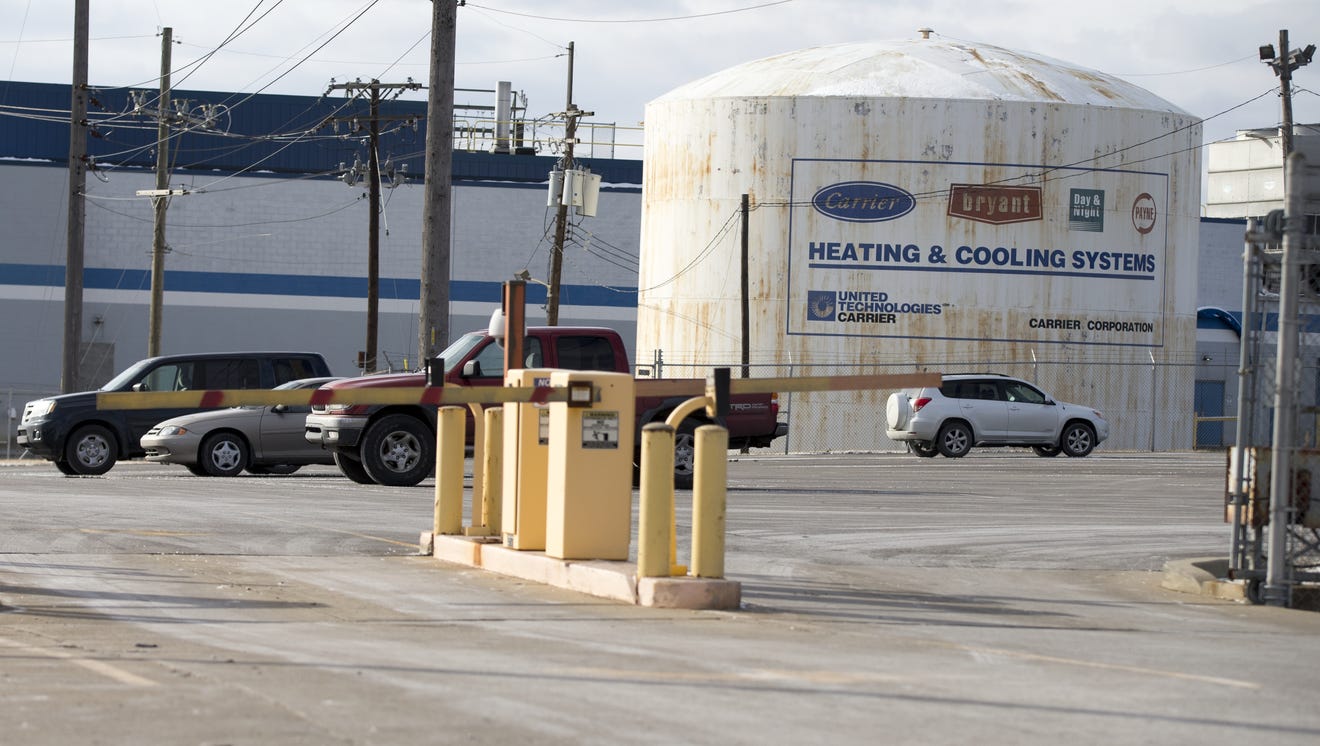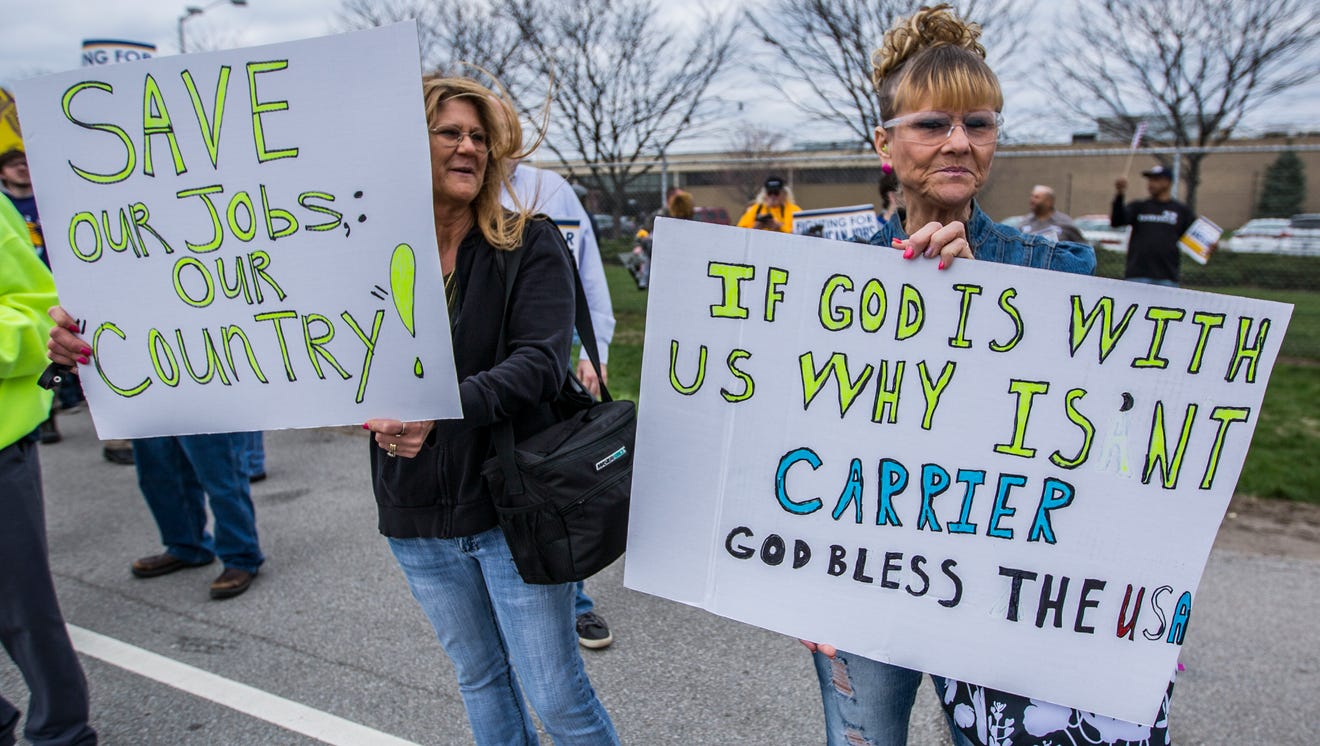Carrier Corporation was founded on June 26, 1915, in Farmington, Connecticut. It is a leading producer of heating, air conditioning, and refrigeration equipment with a manufacturing facility in Indianapolis for residential and commercial furnaces serving a global clientele. The company also produces commercial refrigeration and food-service equipment for the food industry.

In 1955, Carrier merged with Affiliated Gas Equipment, Inc., which owned the Bryant Heater Company, Day & Night Water Heater Company, and Payne Furnace & Supply Company. After the merger, Bryant Heater Company moved its Cleveland, Ohio, headquarters to Indianapolis. At the same time, Bryant engineers began to design distinctively novel air conditioning units relative to Carrier units. To meet the increasing demand for Bryant-designed air conditioners, Carrier Corporation, then known as Carrier Air Conditioning Company, built a sprawling Indianapolis-based engineering and manufacturing campus at 7310 W. Morris Street in 1968.
United Technologies Corporation (UTC) acquired Carrier Corporation in July 1979. In 2001 Carrier was the world’s largest manufacturer of air conditioning, heating, and refrigeration equipment with total employment of 42,600 and revenue of $8.9 billion.
In early 2008, Carrier acquired Environmental Market Solutions, Incorporated (EMSI), an environmental and green building consulting company based in the United States. The company has received Leadership in Energy and Environmental Design (LEED) certification from the US Green Building Council for its factories in Charlotte, North Carolina, and Huntington, Indiana (2009), Shanghai, China (2010), and Monterrey, Mexico (2011).
In September 2013, Carrier Corporation, Otis Elevators, and United Technologies Fire and Security were combined into one subsidiary.

In February 2016, Carrier Corporation also disclosed that it planned to close its Indianapolis factory and move production to Monterrey, Mexico. The company cited cost and pricing pressure issues and its existing infrastructure and a strong supplier base in Mexico as reasons for the move. Carrier also claimed the relocation would enhance cost-efficiency. Carrier employees worked under the assumption the move would take place over three years with no jobs affected until mid-2017. The final move was to be completed by the end of 2019.
Over the November 2016 Thanksgiving holiday weekend, President-elect Donald Trump tweeted he was in conversation with Carrier management to prevent Carrier’s move to Mexico, thus saving jobs in Indianapolis. On November 30, 2016, Carrier announced that it had negotiated an agreement with President-elect Trump and Vice President-elect Mike Pence to continue manufacturing gas furnaces in Indianapolis. On December 1, 2016, the President-elect traveled to Indianapolis to celebrate sealing the deal that called for retaining engineering and headquarters staff and preserving more than 1,000 jobs in Indianapolis. The agreement included a state incentive package of about $7 million over 10 years. The number of jobs saved was later reduced to 800.
In May 2017, as part of their previously announced plan, Carrier told the state of Indiana that it would cut 632 jobs from its Indianapolis factory. Carrier would also move 700 jobs from the Huntington, Indiana, factory, which manufactures electronic controls for its operations in Mexico. The deal also called for a $16 million investment in automation at the Indianapolis plant that will eventually eliminate some of the jobs saved there. Layoffs began at the end of July 2017, with each worker receiving one week’s salary for each year of employment, education, and job training, plus six months of health insurance as part of the separation package.
As of October 2020, 800 positions had been saved but the remaining workers were required to work 8-10 hour shifts seven days a week. Many of them had not had a day off in months. The relentless work schedule made them particularly vulnerable to the novel coronavirus (COVID-19). The virus caused a shutdown of the factory for more than two weeks in March and April.
The Carrier Corporation remained in compliance with the $7 million deal at the end of 2020. United Technologies Corporation announced that it would separate into three different companies, spinning off Carrier Corporation following its purchase of Rockwell Collins in 2018. Carrier’s separation from UTC was complete as of March 2020. Carrier Corporation continued as a stand-alone publicly traded company, with an estimated value of $30 billion.

Help improve this entry
Contribute information, offer corrections, suggest images.
You can also recommend new entries related to this topic.

